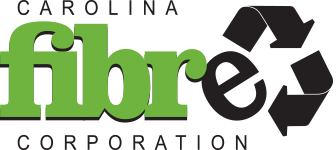Plastic is inexpensive, durable, and lightweight, so it makes sense that it’s used abundantly in manufacturing.
Plastics are used to manufacture a staggering number of products we use every day – everything from food and beverage containers to trash and grocery bags and even children’s toys and diapers. But all this product has to go somewhere, right?
Each year, approximately 100 million tons of plastic is produced, and it usually ends up in landfills. When plastic is disposed of in landfills, it can take up to 1000 years to decompose. When burnt, plastic releases highly toxic gas. Keeping these things in mind, the best option for dealing with plastic is reducing the amount we use in the first place, and for the plastic waste we do use, it is essential that we are recycling.
Recycling is crucial to the future health of our planet, and here are four reasons why. Keep reading for four major benefits of recycling plastic.
It conserves natural resources and energy.
Tossing that plastic water bottle in the trash takes less than a second. Reusing it takes the same amount of time and has more benefits. Did you know that it takes twice as much energy to burn plastic as it does to recycle it?
Recycling saves energy by reducing or eliminating the need to make materials from scratch. Making products from scratch is labor-intensive and expensive. Using recycled materials instead of pulling new natural resources, manufacturers can make the same products with less energy and expense.
[Need some recycling tips for this coming summer? Click here!]
Recycling plastics saves so much landfill space.
Our American landfills are growing every day. Because they are so full, they take up large parcels of land which destroys essential natural resources. Waste dumps are also significant emitters of methane gas, one of the primary gases proven to be responsible for climate change. According to an article in EPA, “In 2018, landfills received 27 million tons of plastic.”
By recycling our plastic, we can help slow the rate at which our landfills are filling up and the number of greenhouse gases generated by them.
Helps protect ecosystems and wildlife.
Recycling reduces the need to grow, harvest, or extract new raw materials from the Earth. That, in turn, lessens the disruption and damage done to the natural world: fewer forests cut down, rivers diverted, wild animals harmed or displaced, and less pollution of water, soil, and air.
And of course, if our plastic waste isn’t safely put in the recycling, it can be blown or washed into rivers and seas and end up hundreds or thousands of miles away, polluting coastlines and waterways and becoming a problem for everyone.
Our oceans are in trouble, and the numbers are astounding. According to National Geographic, “there are 5.25 trillion pieces of plastic debris in the ocean. Of that mass, 269,000 tons float on the surface, while some four billion plastic microfibers per square kilometer litter the deep sea.”
Reducing climate-changing carbon emissions.
Because recycling means you need to use less energy on sourcing and processing new raw materials, it produces lower carbon emissions. It also keeps potentially methane-releasing waste out of landfill sites.
Reducing carbon dioxide and other greenhouse gases being emitted into the atmosphere is vital for stopping disastrous climate change.
The truth is we need to get into the habit of using less stuff. And the things we use need to be reused before being recycled to minimize waste. Many people think that one person can’t make a difference, but when it comes to recycling, one person can make a huge impact. Recycling is a simple way to preserve our natural resources and protect our clean air and water.
With the services and facilities offered by Carolina Fibre, it’s easier than ever to jump on board with green efforts here in eastern North Carolina. Contact us today to learn more about our recycling services!

 Father’s Day is just around the corner, and while we may have big things going on in the world around us, we must focus on a bit of normalcy.
Father’s Day is just around the corner, and while we may have big things going on in the world around us, we must focus on a bit of normalcy. Grocery shopping gets complicated. You can’t walk up and down the aisles without finding at least five varieties of one product, each claiming to be the healthiest, highest quality, supercharged item out there. So which one is the best option for you and your family?
Grocery shopping gets complicated. You can’t walk up and down the aisles without finding at least five varieties of one product, each claiming to be the healthiest, highest quality, supercharged item out there. So which one is the best option for you and your family?